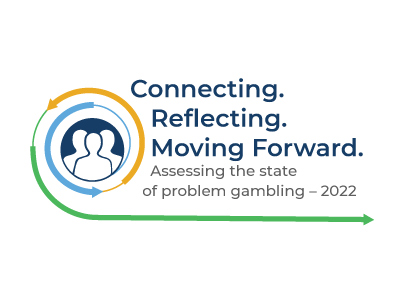The Minnesota Conference on Problem Gambling, produced by MNAPG, took place in mid-November. The theme was Connecting. Reflecting. Moving Forward. Assessing the state of problem gambling. Our conference featured counselors, researchers, an economist and individuals with lived experience.
In this issue of Northern Light, we’re highlighting two of our most powerful presentations, both from those with lived experience. Stories of recovery are always among the most popular sessions at our conference. While each of these stories is unique in terms of games of choice, length of addiction and recovery motivation, they also share common elements, such as greater self-awareness and a much-needed sense of peace.
Women’s Panel Discussion
The women’s panel discussion included four women of various ages and backgrounds detailing their experiences: three were gamblers in recovery and one was an affected family member. Each of the panelists were mothers and were motivated in their recovery to do better not just for themselves but for their children as well.
Among the perspectives shared was the need for there to be safe spaces for woman in recovery, particularly for women of color. Many incorrect assumptions are made about women gamblers and clinicians don’t typically pursue gambling behaviors with their female clients, not realizing that it can be a part of their addiction or mental health story.
Other takeaways from the presentation include:
o Women’s betting isn’t any different than men, though other aspects of their stories are different.
o It’s important to have women-only safe spaces for those whoe have experienced sexual traumas.
o Recovery is not one-size-fits-all, and finding spaces to meet their particular needs was vital to their recovery.
o In some instances, there was generational trauma/addiction, necessitating the need to have frank conversations to break the chain.
Several times throughout the presentation, the women expressed the desire for clinicians and researchers to pay more attention to women, to ask questions about gambling, and to dig deeper into the behavior. They felt that women have been long ignored and that diagnosing the gambling addiction didn’t come to light until each were far along in the addiction.
It takes tremendous courage to relate one’s story to an audience. MNAPG is so grateful to each of these women for agreeing to participate and sharing some of their insights and experiences.
Financial Risk Discussion
Chris Farrell of Minnesota Public Radio and Dan Trolaro of Epic Risk Management spoke about financial literacy and financial freedom and its relationship to gambling. Chris, who has a background in finance and investments, emphasized the importance of weighing risks. Dan, formerly a finance and investment trader, is a person in recovery who used gambling as a salve after experiencing first-hand trauma and tragedy from the World Trade Center attack. His gambling led him to embezzle millions and he ultimately served time for his crimes. Together, Chris and Dan offered a great dialogue about investing today, understanding the differences between risk – appropriate vs. inappropriate, and reframing the understanding of financial literacy.
The speakers emphasized that investing is not a bad thing, but stressed that if one is to do it, they need to understand the vehicles in which they are investing. Additionally, before any investing takes place, it’s important to have conversations with yourself and family as to what you want your money to do for you. Is it for retirement, college, family vacations or long-term health needs? It’s important to set goals and hold yourself accountable to those goals.
Chris talked about peer groups that come together with similar investing goals and values, holding each other accountable and supporting one another as they try to obtain those goals. There’s nothing wrong with putting some money into the market as long as you fully understand what you are putting at risk. Financial literacy is meant to inform you about the risks and to develop good habits; it’s not a tool to determine what to invest in. Establishing goals and holding particular values about money is key.
Financial literacy is about freedom, opportunity and risk, and creating a life that incorporates these three elements. We want people to make appropriate decisions by asking, “What does financial freedom look like to you?” “What do you want your money story to be?” “What are the appropriate risks to get you there?”
The question was raised as to whether people who are early in their recovery should invest at all. Dan said it was important in his early recovery not to invest. He feels a sustainable and meaningful long-term recovery must be a total transformation. Recovery is the path that leads to a whole new life where there isn’t room for gambling. It’s a wholesale change to the way one lives one’s life.

